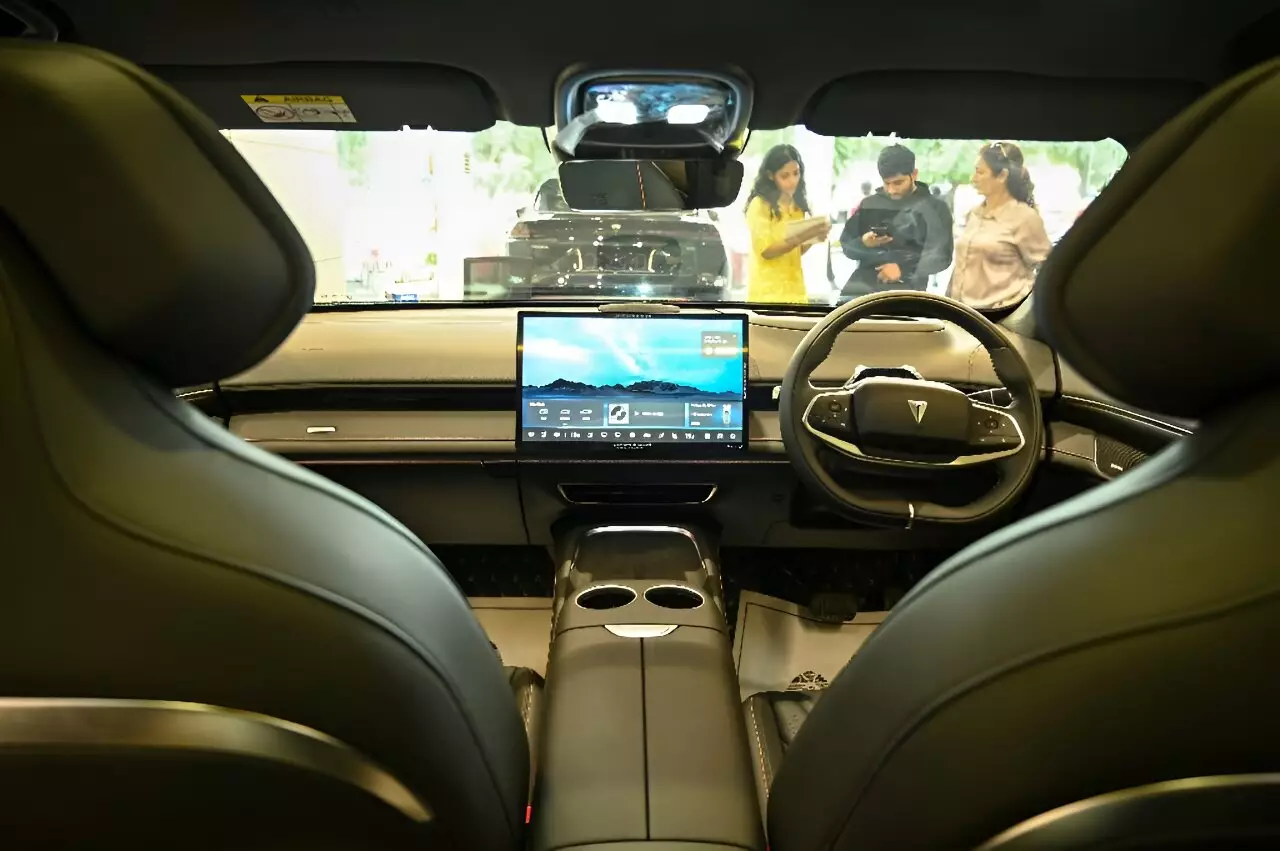In the last decade, the narrative surrounding transportation in Nepal has undergone a remarkable transformation. Particularly in the bustling capital of Kathmandu, taxi drivers like Surendra Parajuli are embracing a new era, marked by the adoption of electric vehicles (EVs). This shift is propelled by previously unimaginable access to affordable electricity, which has dramatically changed the landscape for those reliant on automobiles for their livelihood. With chronic power shortages being the norm just ten years ago, Parajuli’s decision to invest in a battery-operated BYD Atto 3 not only signifies a personal financial victory but also hints at a broader societal change. “It gives 300 kilometers in a single charge and costs me a tenth of what petrol does,” Parajuli notes proudly, showcasing the financial advantages of transitioning to an electric taxi.
The surge in electric vehicles is indicative of a larger transport revolution happening in the Himalayan nation. As an increasing number of Nepalis witness the environmental and economic benefits of EVs, the roadways are beginning to see a gradual replacement of older, more polluting vehicles. With over 40,000 EVs reportedly navigating the often congested streets of Nepal, the demand for cleaner transport solutions is gaining momentum—and it shows no signs of slowing.
The enthusiasm for EVs among Kathmandu’s residents is fueled, in part, by the availability of renewable energy sourced from hydropower. Currently, approximately 99 percent of Nepal’s electricity comes from hydropower, and as investment in dam construction continues to rise, the country is set to expand its generation capacity dramatically. This shift toward renewable energy not only contributes to sustainable growth but also serves to invigorate the local economy by providing residents with access to affordable electricity. Notably, since the year 2000, access to electricity has increased from 14 percent to a staggering 95 percent of the population, marking a significant milestone for the nation.
Transitioning toward electric vehicles is more than just an eco-friendly option; it also presents an economic opportunity to reduce dependency on foreign fossil fuel imports. Kulman Ghising from the Nepal Electricity Authority highlights the economic advantages linked with EV adoption, suggesting that the shift could save the country upwards of $224 million.
Despite these promising advancements, it’s essential to recognize the multifaceted implications of this rapid transition. While adopting EVs and increasing access to renewable energy represents progress, challenges remain.
Skepticism exists regarding the genuine sustainability of this electric vehicle boom, particularly as plans for extensive hydropower development advance. Activists argue that the rush to capitalize on this renewable energy source may lead to irreversible ecological damage, especially as new dams encroach upon previously protected areas, such as national parks and wildlife habitats. The delicate balance between accommodating future energy needs and preserving environmental integrity is at stake.
Additionally, as the adoption of EVs accelerates, the question of electronic waste management looms large. Lithium-ion batteries, commonly utilized in electric vehicles, pose serious risks of environmental contamination and require proper disposal strategies. While immediate concerns surrounding energy prices and transportation may drive government policy as seen in the EV push, long-term strategies for sustainable waste management have yet to be firmly established.
Nabin Bikash Maharjan of Blue Waste to Value underscores the urgency of addressing the e-waste challenge. “The government does not seem far-sighted on this issue; it is just concerned with solving only immediate problems,” he warns. This concern illustrates the need for a comprehensive approach to not only promoting electric mobility but also ensuring the environment remains a priority.
As Nepal stands on the precipice of a revolution in electric mobility, the government and its citizens must navigate the intricate intersections of progress, environmental protection, and social responsibility. Envisioning an immediate future where 90 percent of private vehicle purchases involve electric cars is ambitious, yet accomplishable with the right planning and resource allocation.
Reflecting on the developments within the transportation sector, Nepalis are rightly optimistic about change, yet they must also critically evaluate the broader implications that come with it. By focusing not just on the immediate benefits of transitioning to electric transport, but also on long-term sustainability concerning ecology and waste management, Nepal can emerge as a leader in responsible energy and transportation reform in the region.


Leave a Reply